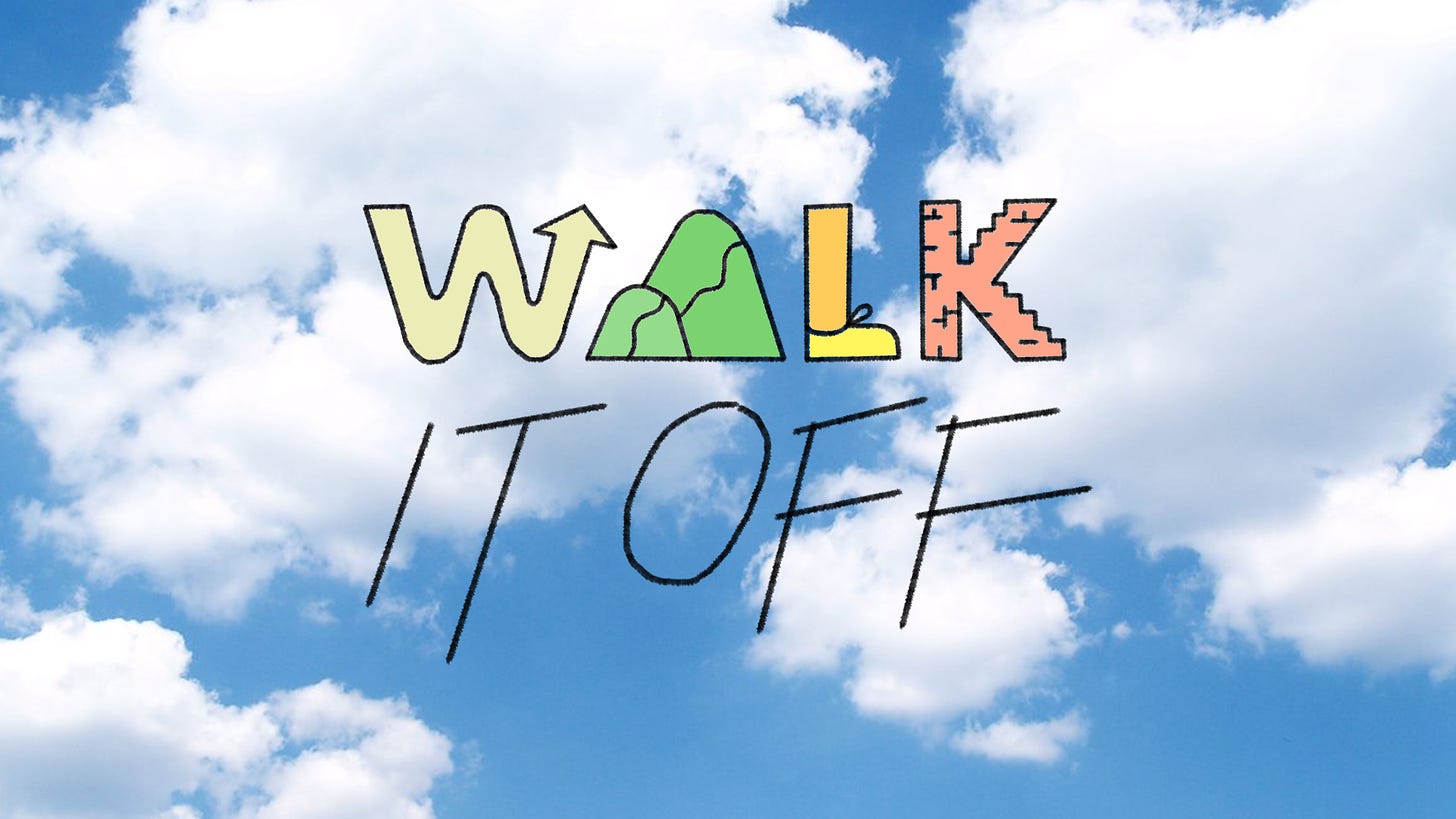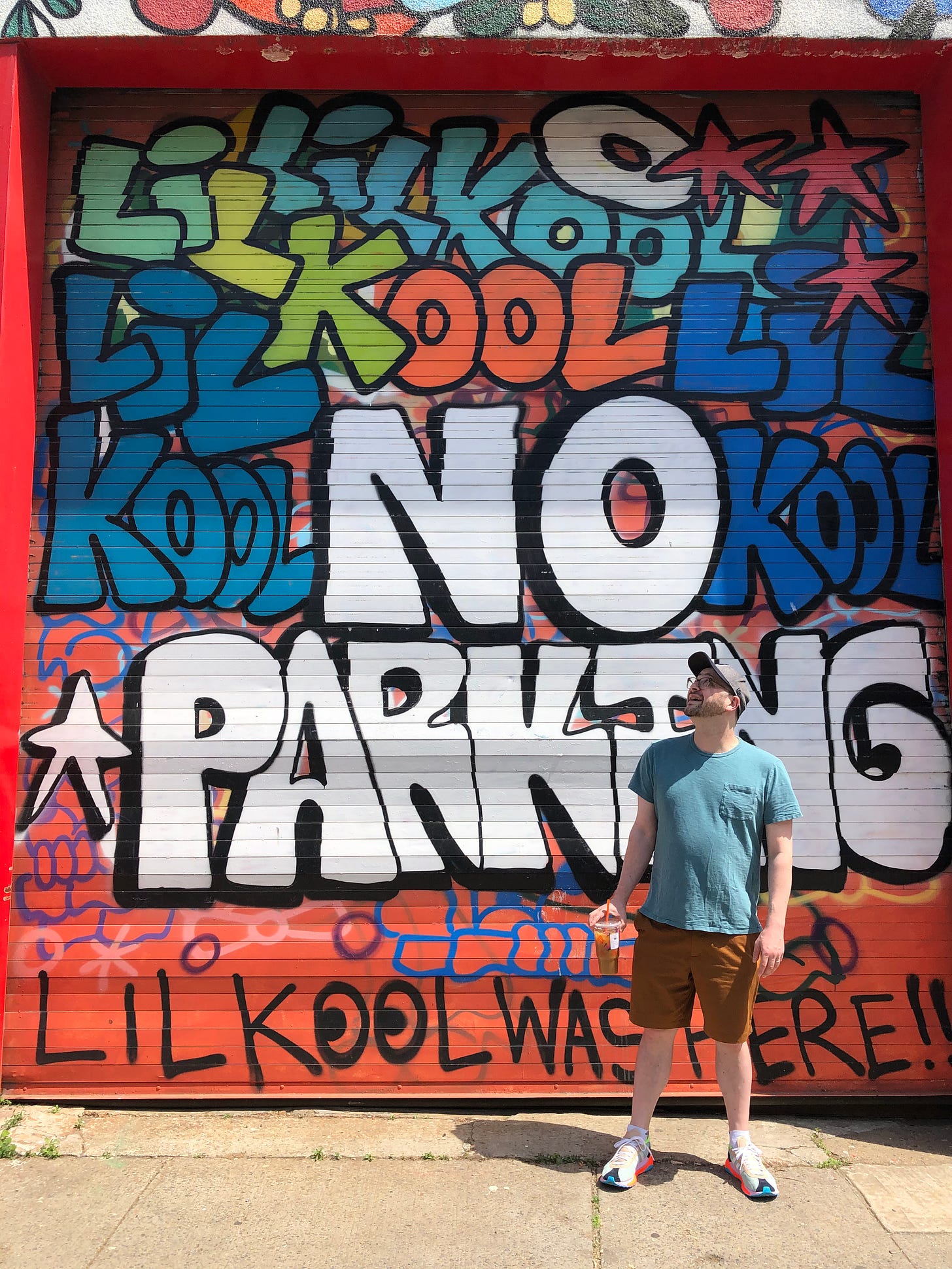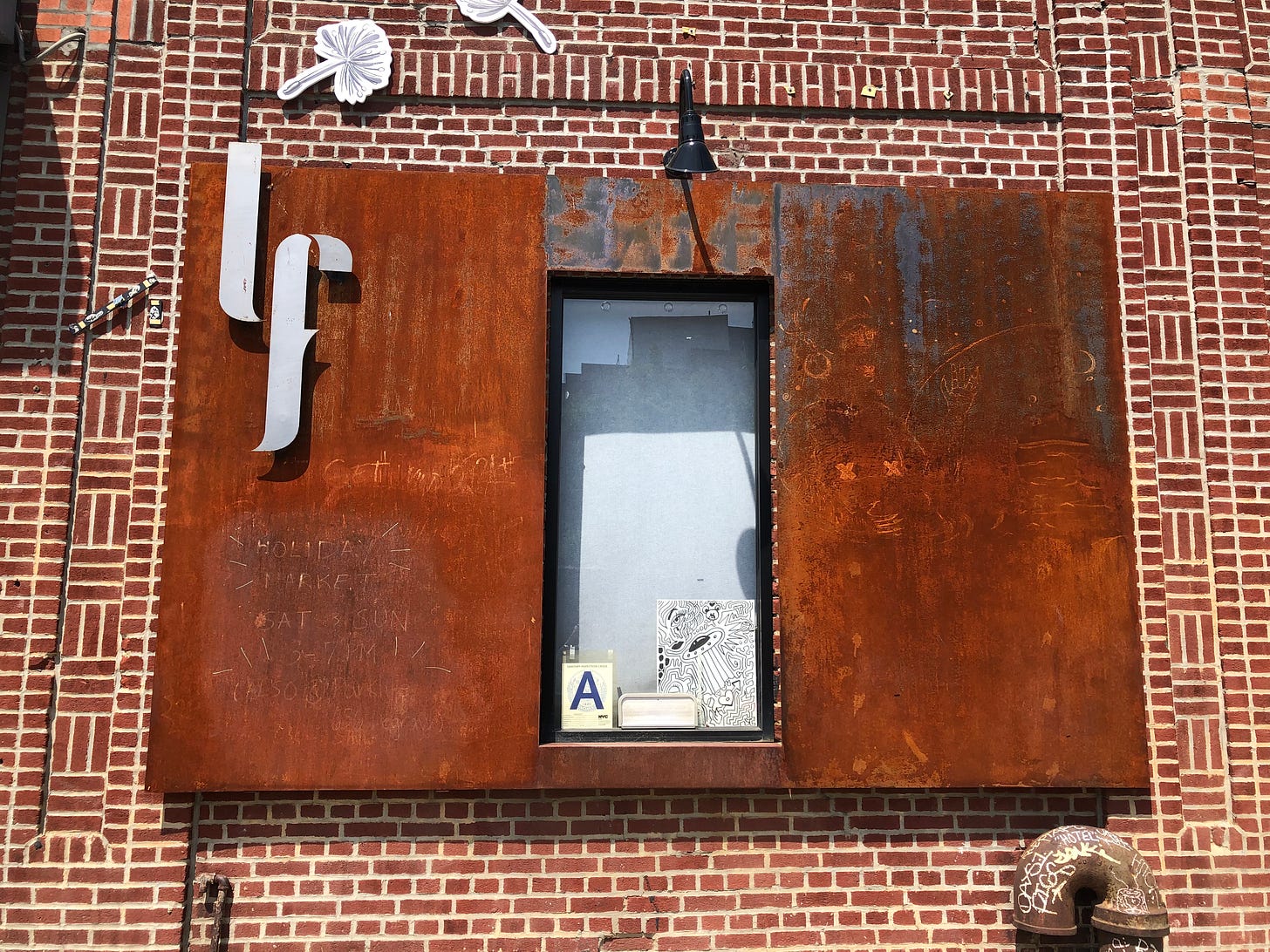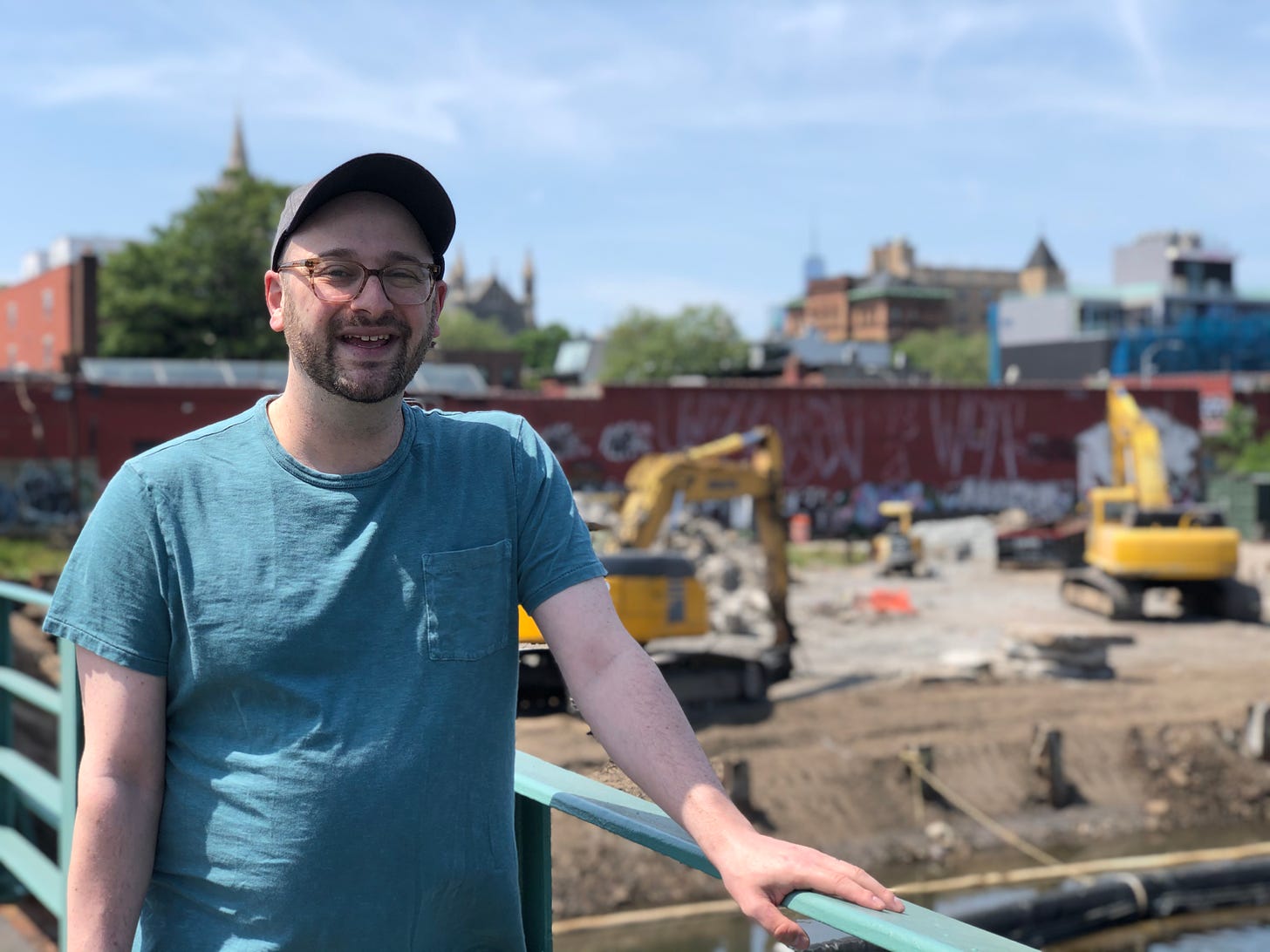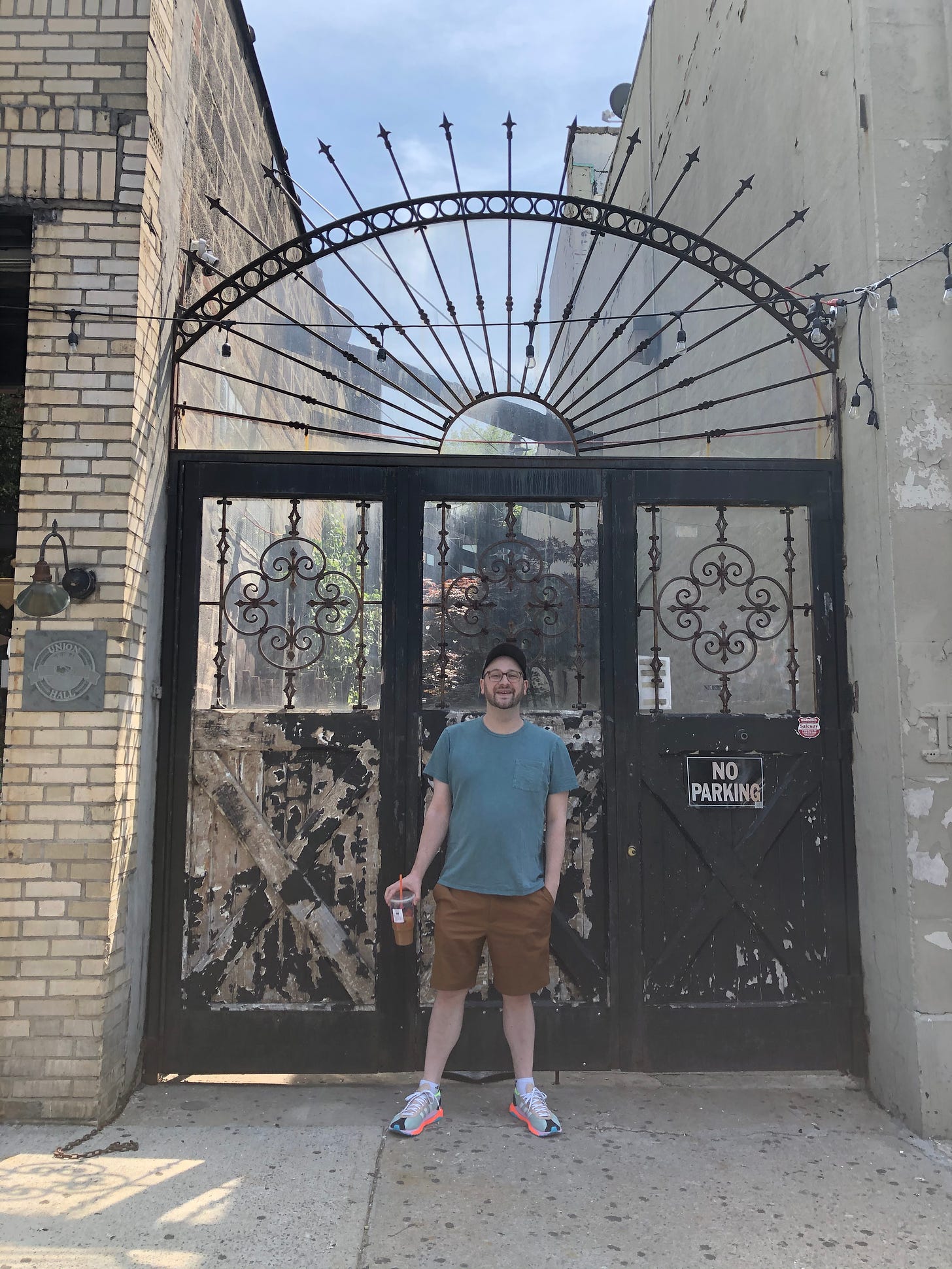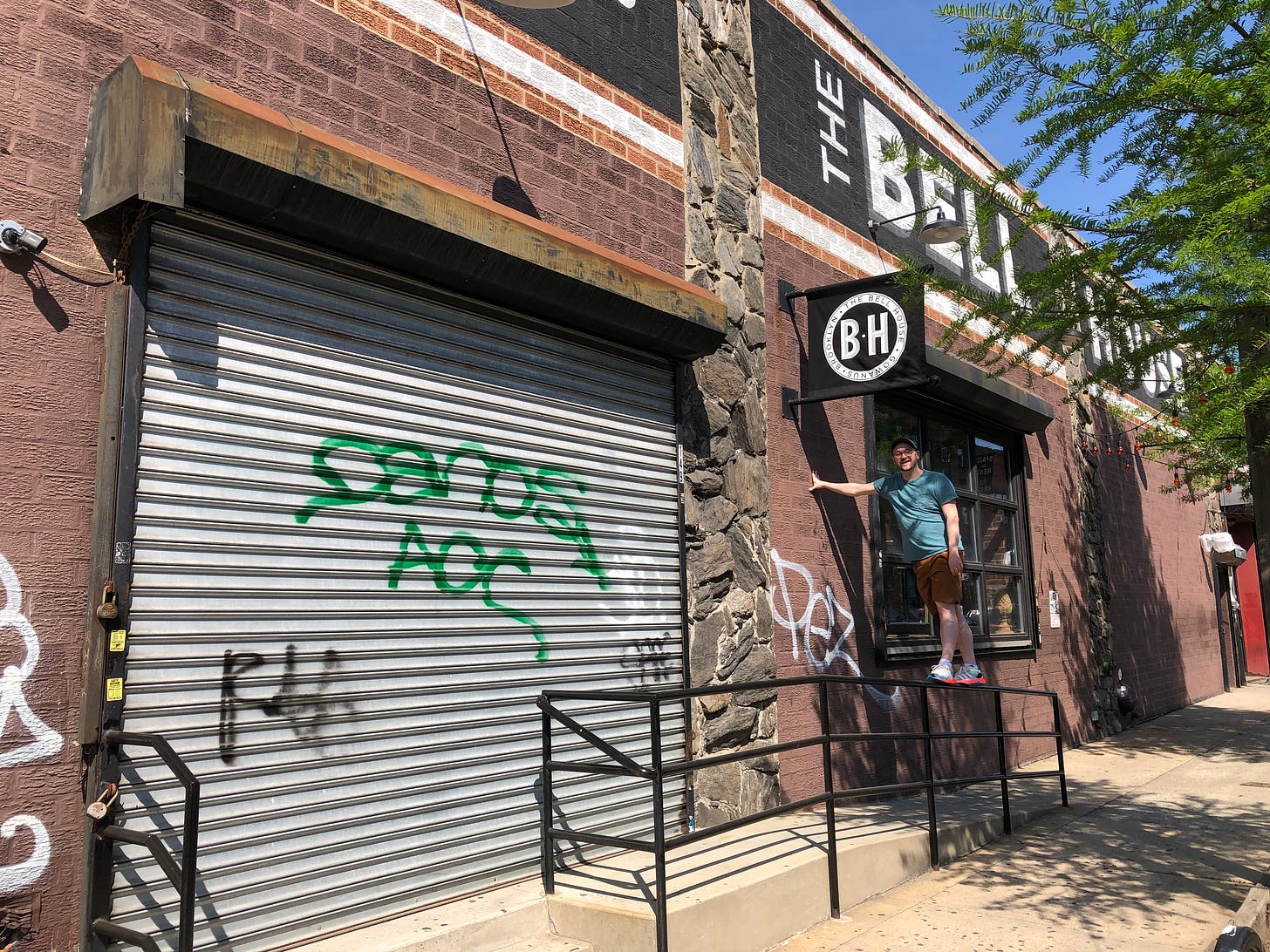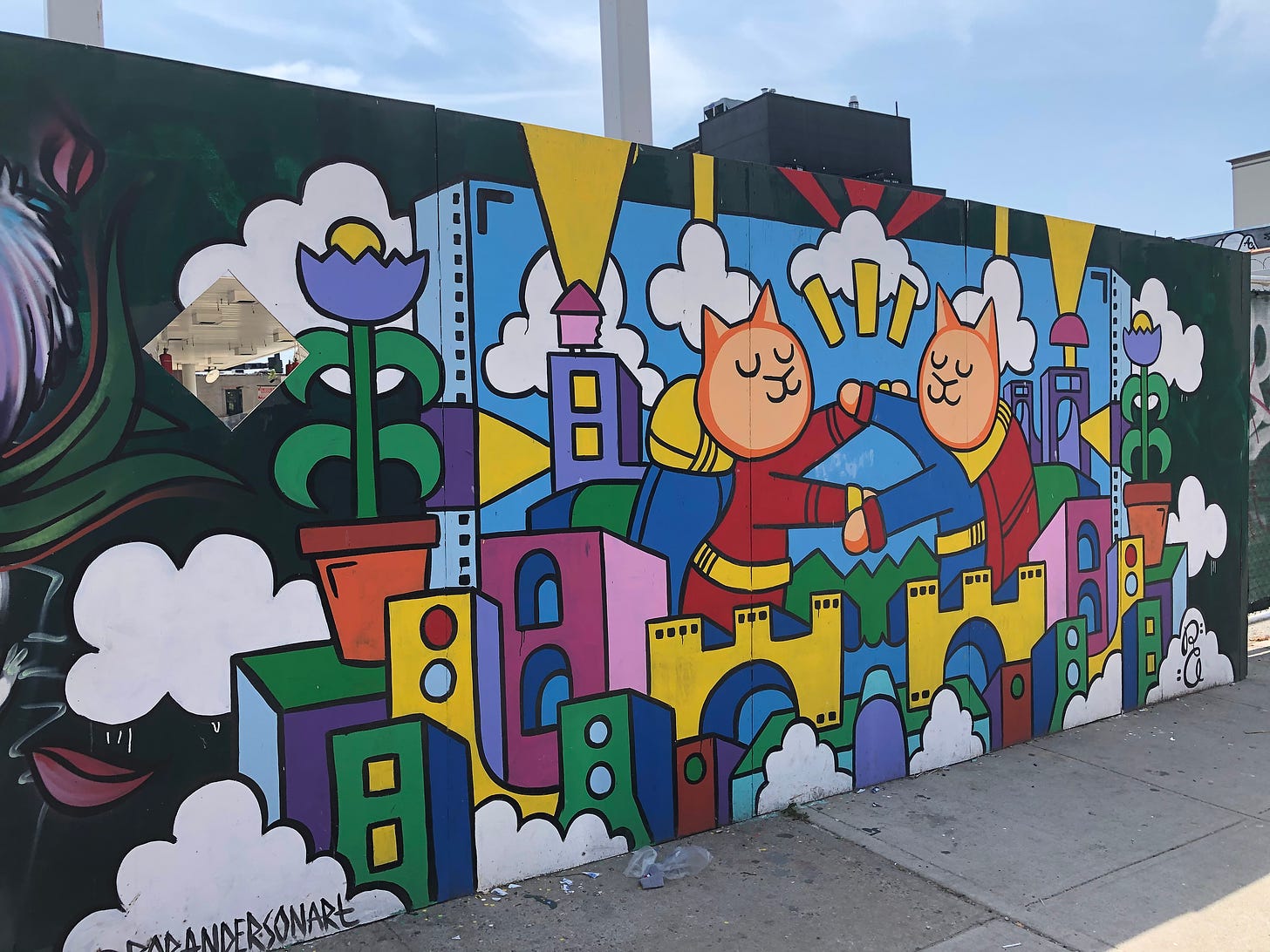A Walk Through Gowanus With Josh Gondelman
"You can’t kill when there are zero people in the room."
Summer finally seems here to stay in New York City when I meet Josh Gondelman outside of his apartment a few blocks off of Smith Street in the Boerum Hill neighborhood of Brooklyn. We quickly walk those blocks to a nearby Dunkin' Donuts, where Josh orders a large iced coffee with four milks, one pump of sugar, and blueberry flavoring.
“Are you sponsored by Dunkin’ yet?” I ask.
“No. But a boy can dream!”
A boy can dream. And I don’t know it yet, but that’s the walk Josh Gondelman is taking me on today. A walk through his dream of becoming a stand-up comedian, a dream that he turned into a reality over the past decade. As we walk past different landmarks in Josh’s history, his iced coffee sweating in the afternoon sun, we talk and laugh our way through the city streets.
Isaac: I’m starting to get a theme here, which is that you are walking me to different comedy clubs in the neighborhood. What do these places mean to you?
Josh Gondelman: We’re going to three of the big, independent comedy venues in Park Slope and Gowanus: Littlefield, Union Hall, and The Bell House.
All three of these venues have been big for my sense of New York and Brooklyn as a comedy home. One of the first really cool things I got to do after I moved to New York in 2011 was a very short set at the The Eugene Mirman Comedy Festival at Union Hall. Then Eugene, who has been so gracious to me, booked me on his Sunday night show, Pretty Good Friends. I had read about Union Hall before I moved here, so to start doing shows there, and through somebody that I respected and admired so much, was really thrilling.
And then similarly Kurt Braunohler asked me to do his show Hot Tub that he co-hosted with Kristen Schaal here at Littlefield and out in LA, within a year or so after I moved here, and that was a moment where I felt, “oh, this landscape is opening up to me a little bit.”
These were shows hosted and produced by people I really admired and respected, so it felt like, “oh, this is where some cool stuff is happening.” These three venues are all geographically close, but also spiritually close—maybe that’s too lofty a word for it, but they are tonally close. I felt at home at all three of these venues in a similar way.
I: And what was The Bell House for you?
JG: I don’t remember the first time I performed there. But I recorded my last album there, and it was a big, sold out crowd. And it felt like a hometown crowd. You can cram 350 people in there. All three of these venues are places with some seats and then a lot of standing room. It’s different than 350 people all sitting because when you’re counting standing room you just get a denser room full of people. A play with 350 people at it is different than a punk show with 350 people at it. And a comedy show is somewhere in between.
So I recorded the album in January of 2019 and the album came out in April of that year. When I had gone on tour the previous couple of years I would always cap it off with a show at The Bell House, and that recording was the biggest crowd I had for any of those shows, so it was nice. When I go home to Massachusetts there’s that feeling of people I know come out to the shows, people I don’t know who have seen my comedy come out to the shows, and it’s always good crowds and fun energy. It felt really cool to have that here in Brooklyn too. A second home.
I: Why did you choose comedy as your art?
JG: I enjoy it. The art reason is that nobody can tell me what to do. Which I like. I love having jobs where I get to collaborate with other people and work in service of a project that is greater than my own capacity and my own vision, but I like doing stand up because it’s like, “I want to say this dumb thing and if people don’t like it, then that’s my fault, and I don’t have to answer to anybody else for it.” And that’s fun.
In writing terms, I can be like, “stet”—“I like that joke even though you hate it.” You can’t do it that too much, but you can do it enough where it’s—“I like saying this, and I feel it’s communicative even if it doesn’t provoke the formal reaction.” And I think that’s fun. But I also like it from a craft perspective. Because I like the craft of jokes. So there’s the art reason: unfettered expression, not having to fit a form, etc. And then there’s the craft reason: it is satisfying to make a joke, write a joke, and perform it, and have it land. And it’s satisfying similar to, say, you bake a cake, and then it’s a cake. There’s no tangible form—I mean, that’s why I like doing albums, there’s a physical thing you can hold and say, “I made this!” But I definitely think the craft of it is so fun. I’m not a handy person, but I do love the technical elements of writing a joke.
I: You’re building something. You’re putting it together. You know where it ebbs and flows, and at the end you have this thing you can present to the world.
JG: There is craft to all kinds of writing, but a joke serves a function in a way that I think other forms of writing don’t. And I don’t mean that in any big picture way of like, “jokes mean something, man!” What I mean is you do it and people laugh. In the same way where you hammer a bunch of nails into different pieces of wood, and then it’s a bench and people sit on it. A joke is a word bench.
I: And it’s physical. There’s a physical reaction from the audience.
JG: There’s a physical interaction that is beyond the emotional and artistic truth. I thought this thing, and I worked on this thing, and I tinkered with it, and now it has this function in my act. When I say it, it has this prescribed reaction that I can elicit through repetition, like whittling. I have a lot of lot of old time-y New England pride—“I built this ship!”
I: What is it like to work in a writers room of a television show?
JG: It’s an office where you can say “fuck.”
My jobs have all been really fun and cool, and I’ve been so grateful for them. I feel like the idea that every writers room is like SNL in the 70s where it’s “we take a bunch of pills, and we stay up until 10am the next day, and that’s how comedy is made,” is absolutely not my experience with it. It is simply a workplace—the office at Last Week Tonight was the most office-y office you’ve ever seen. And the Desus & Mero office is also very—it doesn’t look like, “ooh this is a zany place.” But everybody there is working on a fun exciting project.
I: I would argue Desus & Mero more than most shows, especially early on, figured out out how to do television during the pandemic extremely well. What makes Desus & Mero work?
JG: The easy answer is Desus and Mero. That’s the slam dunk answer. And I think what made the show work during the pandemic, specifically right away, is that the rhythm of Desus & Mero is not as contingent on a live audience. The rhythm of a monologue joke is that you tell a joke, the audience reacts, the host reacts to the reaction, and moves on to the next joke. Desus and Mero, even when there is an audience, they’re mostly keyed in on each other. And they had each other the whole time. So the dynamic was very much the same. There were fewer pauses for audience laughter. So the cadence of the show was able to stay largely the same, because the dynamics—of Mero reacting to Desus, Desus reacting to Mero—were still in place.
It’s not as if Jimmy Kimmel was bombing. But you can’t kill when there are zero people in the room. So I think the other shows had to re-learn the speed at which you deliver your material, and Desus and Mero really didn’t. It was maybe more of a tech issue, our tech stuff was trickier than some of the other shows because we had to figure out how to get them both on screen, seeing each other without a lag, all of that had to happen. But the product, the show itself, felt so much like itself right away, because it was, “Oh they’re just doing their own thing.” The best parts of Desus & Mero, the studio part, and now the Zoom studio part, it feels like it doesn’t matter if anyone’s watching. It feels like you’re eavesdropping on two dudes having a good time. It takes a whole great team to make that happen and it takes a lot of effort and a big team to make that happen on television. But I think the magic of it is you get that uncut. These guys are fucking around, in a way that feels less mediated and more intimate.
I: You also are an essayist. A wonderful writer. And something you write about often is your relationship. So I wanted to ask you, what do you love about love?
JG: I love getting to experience life with a person I care about and admire and think is great and I just love Maris so much. So she’s what I love about love.
I: What a great answer.
JG: It’s specific. I’m not just like, “oh I would fucking love to be in love.” No, I love Maris. And having this beautiful, wonderful, brilliant person to share everything with is the best part.
I: I think it’s fair to say most people think of you as a kind person. And a kind comedian. Why be nice to people?
JG: It is nice to have any reputation at all, and this is a very sweet one to have. I think that generally in the world being nice and kind to people is important because I think that’s the way to treat people until proven otherwise. Until you’re like, “straight up fuck this person. They’re a pernicious moral force, or a corrosive presence in my life.” Until you get to that point, the default should be to be nice to people. And I think on stage it works for me to be friendly, to have a friendly demeanor, because I think that’s how I am, and I just turn up the dial on that on stage to present it to the world. But I definitely think my onstage demeanor and persona are an exaggeration of what I am like in real life.
I: Did you ever try the other way?
JG: Sure, and even still sometimes I will write a joke where I will come at something from an angle that’s a little bit more sour. And then I’ll go, “if I pour a little sugar on it, it helps the medicine go down.” And I think that is true for me. I think for some people the more biting they are, the better they are working. Whereas for me, I can get away with more when I am leaning into the gentleness of the presentation, rather than like “boy, do I hate when my shoelaces fray at the end,” and then I am furious about that. I think to take it the other direction and hit it from a point of gentleness and being overwhelmed and not angry is what works for me.
I: On Twitter you often give people pep talks. You also have a podcast, Make My Day, that has a pep talk element to it. What do you get out of gassing people up?
JG: I get the feeling of allocating my resources wisely. If I have a surplus of, “I’m awake!”—I usually do it late at night—“I’m awake, and I feel this tenderness and enthusiasm, my tank is topped off,” it’s a helpful and generous allocation of resources to use a little extra I have to give a little bit to someone else. It’s a very satisfying feeling to me.
I: Is there a world where Josh is showrunning? Would you be open to doing a Josh Gondelman tv show of some kind?
JG: Yeah. I mean, I would like to make more stuff. I love working for Desus & Mero, and serving the vision of the show. And I loved doing it for Last Week Tonight. And I really love writing books that are my own vision and voice, and doing stand up, and I think the more chances I have to work with people I really love and admire, and make stuff that is in service of their worldview and contribute what I have to offer to their worldview, I don’t think I’ll ever be done with that. But I do always love getting a chance to make something that comes from my view of things and my take on the world and my experiences. So yeah, I’m always trying to make more stuff.
I: Back to Littlefield, Union Hall, and The Bell House. What does it mean to you that these venues reopening? To see comedy coming back after the pandemic?
JG: I’m excited, and a little nervous. These comedy venues opening back up feels more like “back to normal” for me than almost any other signifier I’ve seen so far. I’m really glad the venues didn’t have to close down forever because of Covid, and I’m excited to see my friends and to perform. But I know the pandemic isn’t over, so I just hope it isn’t all happening too soon. I simply hope that things keep getting safer and better.
Josh and I continue to walk through Gowanus, the three venues behind us. We discuss our fears and hopes and enjoy the beautiful weather. Josh’s iced coffee is long gone, but he holds the empty plastic cup like an unlit cigarette, gesturing with it as he talks.
We were friends before the pandemic, but that friendship was still growing, still building, and then the world stopped. Is there a relationship that you are planning to pick back up? A friendship worth re-investing in?
I think about this as I hug Josh and he walks back into his apartment. I walk over to the Brooklyn Inn and order a Guinness along with a pandemic hotdog, a food item that, despite all odds, I’ve become fond of. One packet of ketchup. One packet of mustard. Like spending a summer afternoon with Josh, it gives me what I need for what comes next.




